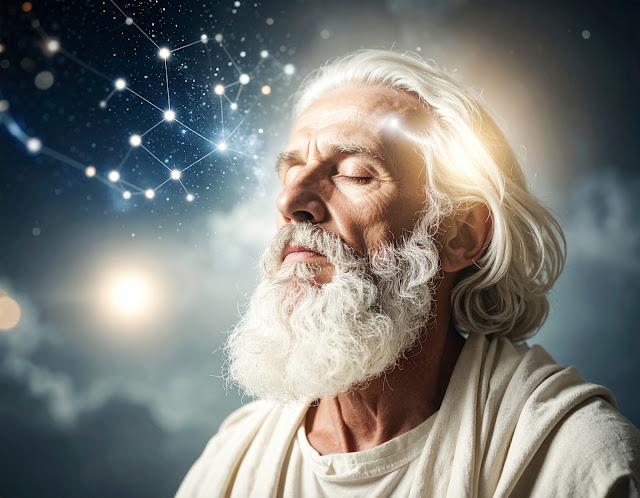"It remains, therefore, if it be admitted that a divine nature can be in any respect known, that it must be apprehended by the hyparxis of the soul (...)
the sensible by sense, the doxastic by opinion, the dianoetic by dianoia, and the intelligible by intellect. So that the most unical nature must be known by the one, and the ineffable by that which is ineffable.
Indeed, Socrates in the [First] Alcibiades rightly observes, that the soul entering into herself will behold all other things, and deity itself. For verging to her own union, and to the centre of all life, laying aside multitude, and the variety of the all manifold powers which she contains, she ascends to the highest watch-tower of beings. And as in the most holy of the mysteries, they say, that the mystics at first meet with the multiform, and many-shaped genera, which are hurled forth before the Gods, but on entering the interior parts of the temple, unmoved, and guarded by the mystic rites, they genuinely receive in their bosom divine illumination, and divested of their garments, as they would say, participate of a divine nature;—the same mode, as it appears to me, takes place in the speculation of wholes. For the soul when looking at things posterior to herself, beholds the shadows and images of beings, but when she converts herself to herself she evolves her own essence, and the reasons which she contains. And at first indeed, she only as it were beholds herself; but, when she penetrates more profoundly into the knowledge of herself, she finds in herself both intellect, and the orders of beings. When however, she proceeds into her interior recesses, and into the adytum as it were of the soul, she perceives with her eye closed, the genus of the Gods, and the unities of beings. For all things are in us psychically, and through this we are naturally capable of knowing all things, by exciting the powers and the images of wholes which we contain.
And this is the best employment of our energy, to be extended to a divine nature itself, having our powers at rest, to revolve harmoniously round it, to excite all the multitude of the soul to this union, and laying aside all such things as are posterior to the one, to become seated and conjoined with that which is ineffable, and beyond all things. For it is lawful for the soul to ascend, till she terminates her flight in the principle of things; but arriving thither, beholding the place which is there, descending thence, and directing her course through beings; likewise, evolving the multitude of forms, exploring their monads and their numbers, and apprehending intellectually how each is suspended from its proper unity, then we may consider her as possessing the most perfect science of divine natures, perceiving in a uniform manner the progressions of the Gods into beings, and the distinctions of beings about the Gods. Such then according to Plato’s decision is our theologist; and theology is a habit of this kind, which unfolds the hyparxis itself of the Gods, separates and speculates their unknown and unical light from the peculiarity of their participants, and announces it to such as are worthy of this energy, which is both blessed and comprehends all things at once."
Platonic Theology, Book I, Chapter III




Comentários
Enviar um comentário